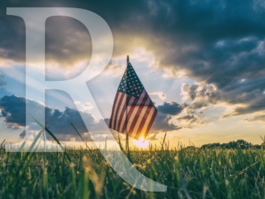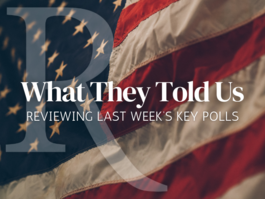Make Louisiana a U.S. Protectorate
A Commentary by Froma Harrop
A modest proposal: The federal government should take over Louisiana. Might as well, at this point.
"We will do whatever is necessary to help the Gulf Coast and its people recover from this tragedy," President Obama said this week from the Oval Office.
Louisiana has had more than its share of tragedies in recent years, and some, such as Hurricane Katrina, could be deemed acts of nature. But whatever the cause, every calamity that befalls Louisiana is made worse by its corrupt civic culture. A protectorate could provide the structure of governance its people need.
It's hardly news that Louisiana's political class is not all it could be. But there comes a time when the U.S. taxpayer can no longer write blank checks to cover its dysfunction.
Louisiana should be a rich state. It has the climate, location, waterfront and all-around beauty that any director of economic development would die for. But Louisiana doesn't seem able to move beyond its dependence on oil.
Texas did it. Today, it is a major force in high-tech research, medical services, trade and manufacturing. Even its energy business is modernized. The West Texas plains are home to an enormous wind power corridor, as entrepreneurs seek clever ways to make natural gas and wind work together. Thus, the Texas economy is one-sixth as sensitive to changes in the oil price as it was 30 years ago.
But in Louisiana, it's oil all the time. Mix a wealthy extractive industry with easily corrupted politicians, and you have makings for a Third World economy. (New Orleans has been called the best-run city in the
Caribbean.)
Louisiana Gov. Bobby Jindal appears fairly competent and smart. But look at the self-contradicting ideology he's tangled in.
A year ago, Jindal provided the Republican response to Obama's fiscal stimulus plan. "Democratic leaders in Washington," he said, "they place their hope in the federal government." (Never mind that as a congressman, Jindal ranked 14th in requests for federal pork.)
Jindal wants over 100 miles of sand berms to supposedly protect his coastline. But the sand piles probably won't work and could actually make matters worse, according to The Wall Street Journal. Most of the oil would hit shore, anyway. The dredging could cause more erosion and kill fish by changing the water's salt content.
Though probably ineffective, the project is big and expensive. Jindal, meanwhile, is asking Obama to end the moratorium on the kind of new deepwater drilling that caused all this pain.
Much of southern Louisiana is under sea level and periodically floods. No sane person would build in these low-lying areas were it not for the federal taxpayer, who subsidizes flood coverage where private insurers would never tread.
The Mississippi Delta wetlands used to provide a buffer against storms. They've been largely destroyed by river-moving projects, levees and canals cut by oil companies.
Five years ago, U.S. taxpayers were asked to restore the Delta at an estimated cost of $15 billion. A lot of money, yes, but the region is a national treasure representing 40 percent of the coastal wetlands in the contiguous United States.
As the proposal progressed, Sen. David Vitter, a Louisiana Republican, worked at gutting a law that empowered the Army Corps of Engineers to protect wetlands in navigable waters. It seems some timber companies wanted to make a fast buck cutting down cypress trees and turning them into ... garden mulch!
Louisiana need not remain a permanent ward of the federal government. As in the case of General Motors, Washington could help change management, then set Louisiana free to run its own affairs. But something must be done.
COPYRIGHT 2010 THE PROVIDENCE JOURNAL CO.
DISTRIBUTED BY CREATORS.COM
See Other Political Commentary.
See Other Commentaries by Froma Harrop .
V iews expressed in this column are those of the author, not those of Rasmussen Reports.
Rasmussen Reports is a media company specializing in the collection, publication and distribution of public opinion information.
We conduct public opinion polls on a variety of topics to inform our audience on events in the news and other topics of interest. To ensure editorial control and independence, we pay for the polls ourselves and generate revenue through the sale of subscriptions, sponsorships, and advertising. Nightly polling on politics, business and lifestyle topics provides the content to update the Rasmussen Reports web site many times each day. If it's in the news, it's in our polls. Additionally, the data drives a daily update newsletter and various media outlets across the country.
Some information, including the Rasmussen Reports daily Presidential Tracking Poll and commentaries are available for free to the general public. Subscriptions are available for $4.95 a month or 34.95 a year that provide subscribers with exclusive access to more than 20 stories per week on upcoming elections, consumer confidence, and issues that affect us all. For those who are really into the numbers, Platinum Members can review demographic crosstabs and a full history of our data.
To learn more about our methodology, click here.



